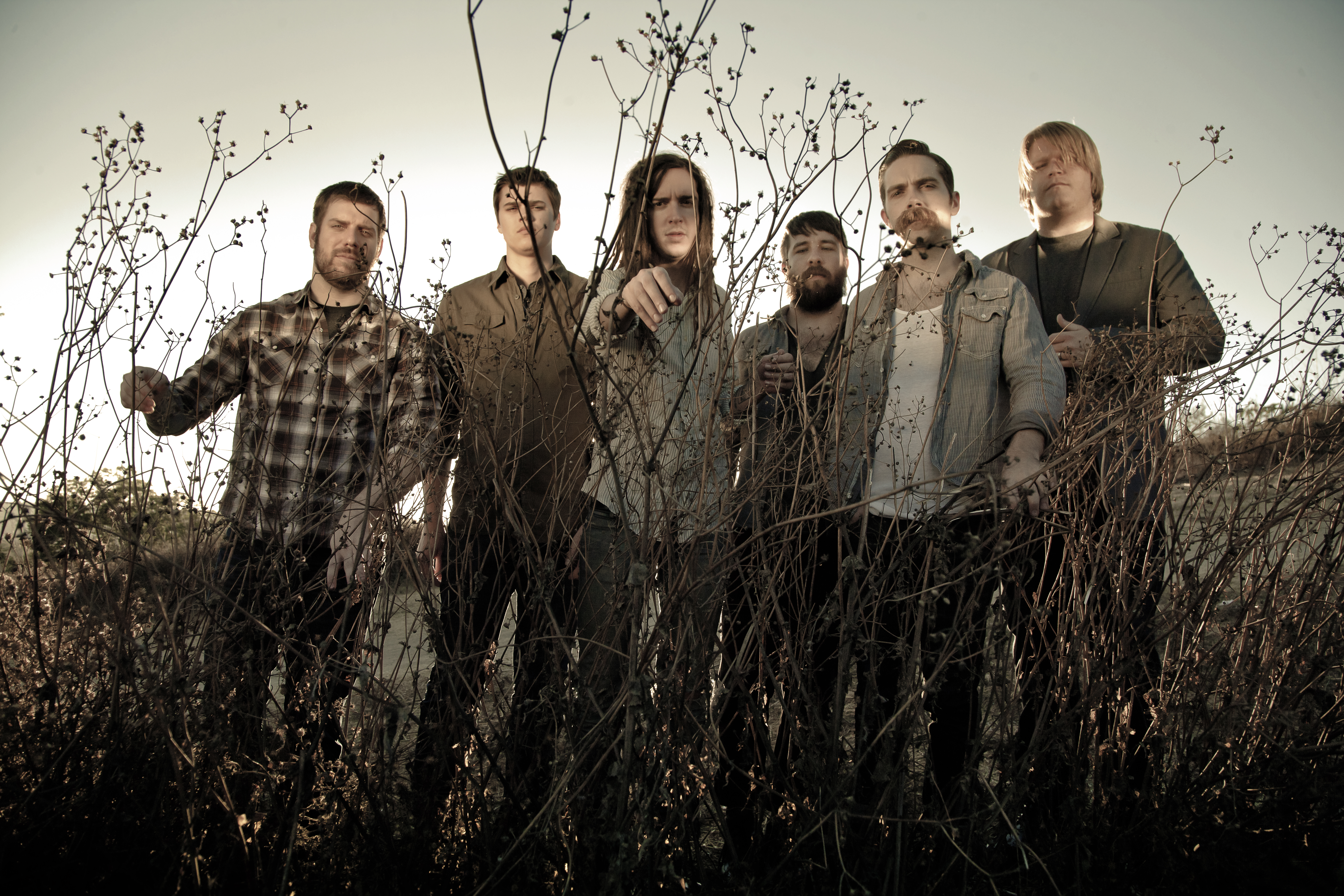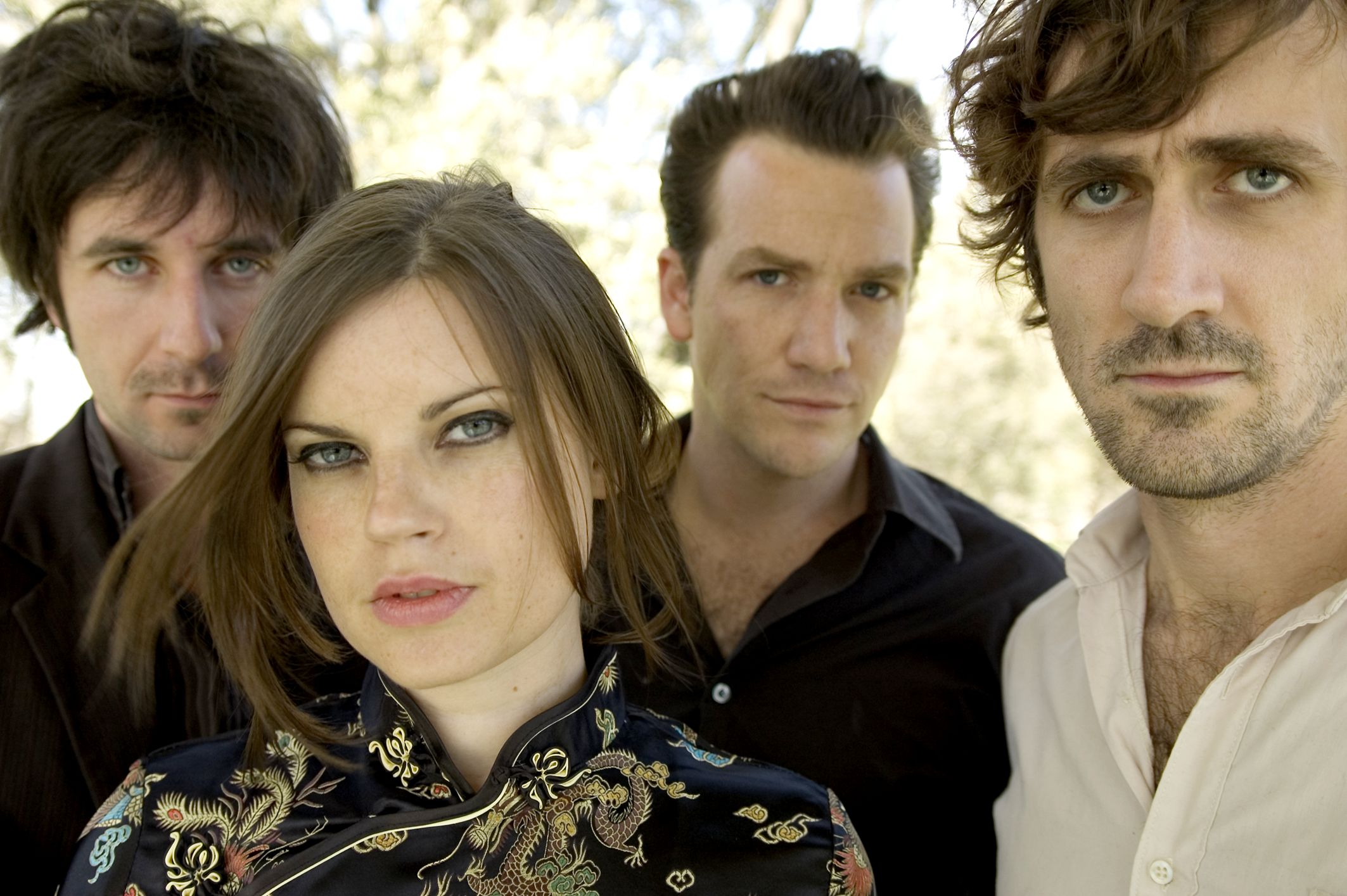Fresh off the stage after performing in Rochester NY, vocalist Spencer Chamberlain from Florida’s Underoath talks of their recent release Disambiguation , the band’s new lineup, and of how growing older can further demarcate musical tastes, influence songwriting and revise personal values.
Fresh off the stage after performing in Rochester NY, vocalist Spencer Chamberlain from Florida’s Underoath talks of their recent release Disambiguation , the band’s new lineup, and of how growing older can further demarcate musical tastes, influence songwriting and revise personal values.
Underoath’s sound has previously been hard to pigeonhole, with albums such as They’re Only Chasing Safety and Define The Great Line presenting an amalgamation of chaotic metal-core and soaring pop choruses. For those who long for such choruses, discover The Almost, an alt/pop band and the project that Underoath’s previous drummer/singer Aaron Gillespie (who left the group earlier this year) is now dedicated to developing. However, if you’re after Underoath’s frenzied riffs and affecting screams in a darker and heavier package – secure yourself a copy of Disambiguation.
The new album is an evolution from Underoath’s last effort Lost In The Sound Of Separation from 2008 – which was also quite a heavy release – but Disambiguation hits harder again, bringing spooky atmospherics to complement a new, darker approach. Chamberlain attributes this darker development to the fact that both the individuals in the group and the band as a whole have matured. “I think it’s because we got rid of the younger, pop side of things,” he nods. “We’re older now, so even though there is a lot of singing happening, it’s often over dark and heavy music.”
Chamberlain is quick to emphasise, however, that melody wasn’t at all compromised. “The record is for sure darker and heavier, but at the same time there are a lot of elements that are more melodic in my opinion… I definitely think there’s more structure than ever, and more melodic singing than ever.”
When questioned on how older fans accustomed to the band’s previous sound have reacted to the new album, Chamberlain insists that feedback has been very positive. “The response that we’ve gotten has been really great. We’ve never had a record where people have said ‘this is your best record’ – and that seems to be the consensus online. I’d say 98 percent of people are saying it’s our best record to date, and then there’s that two percent that don’t like it – but that’s normal with any band.”
“This is our best album by far,” he affirms. “We’re better players, we’re a better band, we get along better, we write better songs that work better together. The songs are just better; they’re actual songs, not just riffs and craziness. I think that’s really cool.”
The band were united in the process of writing Disambiguation, to such an extent that Chamberlain finds it difficult to determine if there was any one member that held the primary musical vision during the song writing process. “We all work on the music together,” deduces the singer. “I [personally] write all the time… and when I hear a song – it might be something I’ve written earlier that made me feel a certain way – I kind of catch the vibe of the song, and sometimes it might inspire us to write something completely new.”
“[When we write] everyone’s input changes everything,” he clarifies, “When someone lays a guitar part down – it changes everything, when I go and lay vocals down – it changes everything.”
The album’s title Disambiguation is a reference to a refining of the band’s sound – the end of the ‘ambiguity’ that was Underoath’s fluctuation between pop and metal-core music. “People might of thought we weren’t gonna be better without Aaron (Gillespie),” explains Chamberlain. “[The title] is a statement about how confident we are about ourselves, our music and the direction of the band. We’re 100 percent positive that this is the best Underoath lineup there’s ever been.”
In regards to the belief that Gillespie had shared Chamberlain’s task of writing lyrics, Chamberlain says it wasn’t as much of a shared responsibility as people assumed. “He would write, but not nearly as much as I would. I was doing 90 percent of the vocals anyway, so he didn’t really write that much. It was more like two people trying to make things work together. There were definitely parts he’d write, but it’s always been my job in the band to write the lyrics.”
When asked about why Gillespie left the band, Chamberlain responds that a divergence of musical tastes occurred as they each grew older, and that it started to affect the band’s dynamics. “Basically Aaron didn’t like the music we liked, and that’s fine, everyone has their own taste, but it started to wear down on us,” he admits. “He was doing his own thing, he was doing The Almost, and he was always gone while we were at home working on music.
“We played heavy music and he didn’t like to play heavy music – he wanted to play pop music. That’s what he wanted to do, and that wasn’t really meshing with what we wanted to do anymore. It was fine when we were 18 and we wrote There Only Chasing Safety, but were not 18 anymore. Some of the guys in the band are 28; you grow up and want different things. Basically, he thought about leaving, and then the five of us talked about it and said ‘we think you should leave because you’re going to be happier, we’re gonna be happier, you can do what you want and we can do what we want’”.
The enthusiasm for Underoath’s music that Gillespie finally lacked, new drummer Daniel Davidson (ex-Norma Jean) now possesses. “He’s a really creative guy,” Chamberlain says of Davidson’s contribution to the band. “He took part in all the writing – he was there from when the first riff was written. We wrote everything with him, we all sat in a room together and wrote the record… it would be completely different without him.”
Underoath are certainly used to recruiting new members, with not one original member of the band remaining in their lineup. One thing that has remained consistent, however, is the group’s public acknowledgment that they are a Christian band. Although they don’t typically preach their beliefs in their lyrics (their lyrical content usually tells of life struggles and is quite dark), they have always recognised their Christian faith. When asked how the group has sustained these values in the heavy music scene, especially with such constant lineup changes, Chamberlain accredits the fact that everyone in the band is so open and accepting in their beliefs. “Everyone’s on a different page; everyone believes the same thing but in different ways. As you get older things change – I’m not the same as I was when I joined the band eight years ago. I think we’ve learned how to be adults about it, and everyone understands and respects each other.”
“We’re still a Christian band, but everyone has a different take on it, and that’s fine, it should be a personal thing,” concludes Chamberlain – a refreshing statement in a world where closed-minded views on religion have generated so much conflict.
In regards to where Underoath will be touring in support of Disambiguation, Chamberlain responds, quite seriously, “Everywhere… we’re definitely going everywhere.”
“We will in Australia early next year, hopefully.”
UNDEROATH’s new album Disambiguation was released on November 5 and is out now through Roadrunner Records. Underoath will land in Australia in early 2011.







